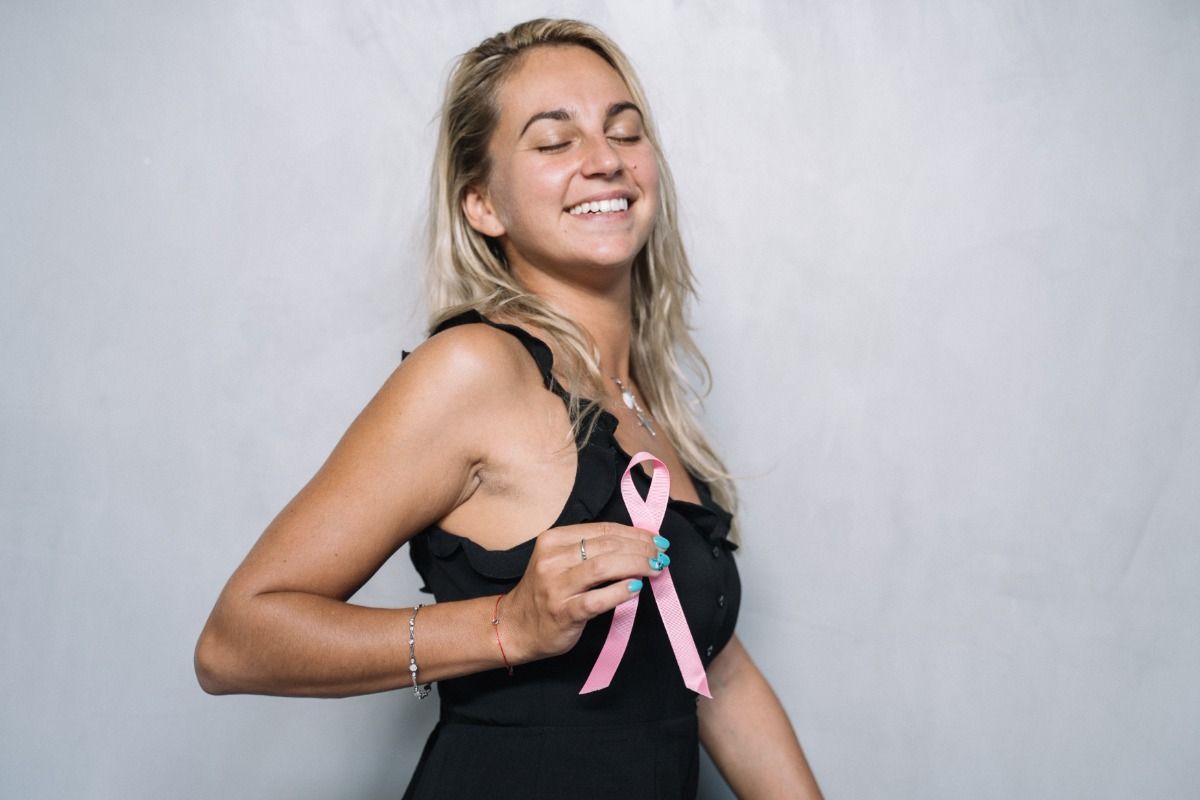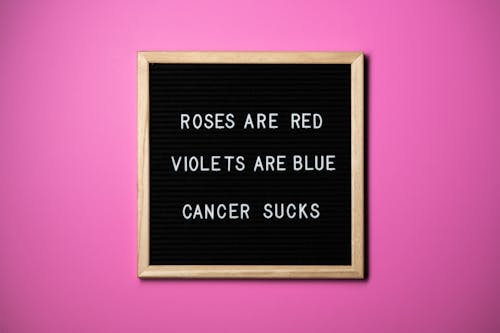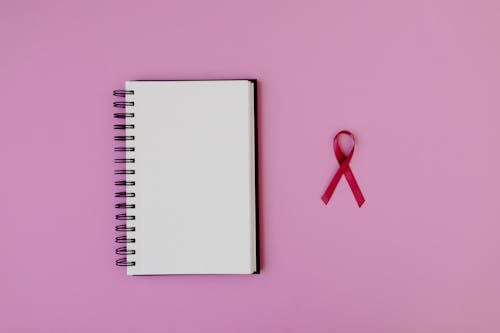
Since October is Breast Cancer Awareness Month, we’re going to explain how breast cancer affects mental health. It’s important to be emotionally prepared for the many ways a breast cancer diagnosis can impact mental health, especially if you or a loved one is dealing with breast cancer.
Circle Magazine spoke with breast cancer survivors who have very inspiring stories. These survivors explained how significantly breast cancer affects mental health. They shared some of the mental health struggles they went through during their breast cancer diagnosis, treatment and beyond. Even a long-time survivor will still have mental health struggles related to breast cancer, for example, due to a persisting fear of recurrence.
Below are some examples of how breast cancer affects mental health, as told by breast cancer survivors:
Breast Cancer Survivors Share How Breast Cancer Affects Mental Health
Kelli Jaecks, MA, RDH is a breast cancer survivor, self-care strategist, published author, and motivational coach. She coaches groups and individuals to achieve their health and wellness goals.
Just this past year, in 2020, Kelli Jaecks survived breast cancer. Her breast cancer treatment included a double mastectomy and a skin-sparing technique which was a very complex procedure. This skin-sparing technique involved fat and blood vessels being harvested from her abdomen and transplanted under her breast skin and hooked up to arteries in her chest wall.
Needless to say, Kelli went through a lot, and she spoke to Circle Magazine about how her breast cancer journey impacted her mental health and caused depression. Kelli explains, “Part of my treatment is taking anti-estrogens (aromatase inhibitors) which means I have no estrogen in my body. This lack of estrogen in the brain led to depression, feelings of despair, and hopelessness. I also experience joint pain and stiffness, and neuropathy in my hands, where I wake up because they are stinging and burning. These symptoms are a direct result of the cancer medication I have to be on for at least 5, if not 10 years.”
Kelli goes on to clarify, “I am not a depressed person in normal life. I am a positive energy, moving forward, loving life kind of person! To experience these bouts of negative physical changes along with dark, down feelings and emotions is scary. I want to sit on the floor, and cry, do nothing, in fact, I often feel I have zero energy to do anything. Fortunately, I do have a great team of doctors around me. I now take 3 other medications, to counter the negative effects of the anti-estrogen.”
It’s clear that Kelli Jaecks found the change in her mental health quite disconcerting. Normally a very positive person, Kelli was not used to feeling so sad and depressed all the time.

Brynn Barale, a 14-year breast cancer survivor, holistic health coach and registered nurse also struggled with mental health side effects such as depression. “Thinking back to my diagnosis, I remained strong for my family. I didn’t allow myself to be vulnerable or require help during treatment. After treatment, my world fell apart and I became depressed. I had to learn to trust my body again, learn to be vulnerable, and be empowered to take control of the things I could. I learned a way of eating that not only helps prevent a recurrence but also makes me feel better mentally.”
Brynn describes how the fear of recurrence still impacts her mental health. She explains, “Even after 14 years, I still fear recurrence. The recurrence freakouts do lessen as time passes, but the fear is always there.”
Dr Savita Ginde, the Chief Healthcare Officer at Stride Community Health Center in Colorado is also a breast cancer survivor.
Dr Ginde just underwent a double mastectomy this year, in 2021. Her annual mammogram done earlier in 2021 helped identify early signs of breast cancer. She then received a lumpectomy and when the results came back, it read that she is likely to get breast cancer down the road – which led to her decision for a double mastectomy.
Without a doubt, a serious procedure such as a double mastectomy will impact the mental health of even the strongest women.
Dr Ginde says, “Finding out you have breast cancer can be very scary and it does impact your mental health. It might even impact the mental health of your partner, children, and even others close to you. It is a time to be kind to yourself; do the things that put you in a space to acknowledge and process your feelings. You have to make sure you use tools to manage your mental health and I do recommend joining a breast cancer support group so you don’t feel so isolated or alone. These groups are wonderful to share your struggles, ask questions, and recognize wins. I’d also recommend scheduling time with a therapist to help you through this time – if you can visit with them once a week or a few times a month, that will help you make sure your mental health stays in check.”

How Feeling Disconnected From Your Body Throughout Breast Cancer Treatment Impacts Mental Health
It’s tough to imagine how difficult it would be to deal with all the changes in your body from breast cancer treatment. Viki Zarkin explained that the changes in her body caused her to feel like she was losing her sense of self. It’s only natural that this could lead to mental health struggles.
Viki Zarkin had Stage IV cancer and was told by her doctors she was dying, and to get her affairs in order. Viki was 44 years old when she received this devastating news that she had terminal cancer. That was 11 years ago. Viki still has cancer and goes twice per month from Harrisburg, PA to Johns Hopkins Medical Center in Baltimore, MD for chemo treatments.
Viki Zarkin wrote a book entitled I Am The One which details her cancer survival story.
Viki told Circle Magazine about how she lost her sense of self when her body started changing. It’s clear that some of the mental health issues that stem from a breast cancer diagnosis are tied to feeling disconnected from your body. Viki explains, “My first stumbling block was losing my hair. I wasn’t prepared for my response at all. I felt like losing my hair was a bit like losing myself. When I would look into the mirror a stranger looked back at me. It was difficult, I won’t lie; facing that stranger in the mirror and finding common ground with her was tough. She was a foreigner after all, but time goes by, and you realize you may never see the person you once knew again in the mirror so you better start getting to know her.”
Viki explains that weight gain and body dysmorphia from your changed body due to breast cancer also impacts mental health. She says, “People also don’t realize that breast cancer is just about only cancer that you will gain weight from. So, we are hit hard. Not only do we suffer from the horrific cancer experience, but we have body dysmorphia to deal with as well as the weight gain and bloating from all the steroids and the 75% chance that our home life will never be the same again. It’s a lot for anyone to handle one of those issues, let alone all four. And in my case, I’m told that I am the only one living today with my aggressive form of cancer. That is heavy stuff to come to terms with but needless to say, I take one day at a time and still do.”
Viki also told Circle Magazine how not everyone with breast cancer has a reliable support system. Many women find that their partners can’t handle it, for example, and that lack of support certainly would not help their mental health struggles. Viki says, “I have witnessed many of my breast cancer survivor friends and acquaintances go into remission and find that their husbands had cheated on them or left them altogether. Some men just aren’t built for this kind of struggle and can’t be supportive partners. Fortunately for me, my husband was one of the good ones and we will be celebrating our thirty-year wedding anniversary in May of the upcoming year.”
Coping with Mental Health Struggles
Breast cancer survivor and doctor, Dr Savita Ginde, explains how she coped with her mental health struggles after her double mastectomy: “Once I decided to get a double mastectomy, I started to incorporate yoga and meditation into my schedule again, and it has helped me immensely. I also made sure that I engaged my husband and my kids to talk about how I was feeling, and also ask them about their fears and feelings about what was happening. The fear that you feel and the questions that you have when you find out about your cancer diagnosis are all real, and I needed a way to acknowledge and move through my fear. Yoga and meditation helped. So did my friends and family. I also have a therapist with whom I worked through all my emotions.”
All of these strategies are helpful when coping with mental health struggles. Going to therapy to talk about what you’re going through, getting support from your family, meditating and doing yoga are all healthy coping methods.
If you want to find out if you’re genetically at risk for any type of cancer, get your comprehensive health report from CircleDNA.






